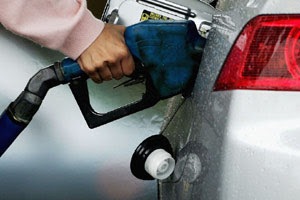 Oil prices eased in Asian trade on Wednesday ahead of a weekly report on US energy stockpiles and after Opec's president rebuffed calls for the cartel to boost output.
Oil prices eased in Asian trade on Wednesday ahead of a weekly report on US energy stockpiles and after Opec's president rebuffed calls for the cartel to boost output.
New York's main oil futures contract, light sweet crude for August delivery, fell 19 cents to 136.81 dollars a barrel after rising 26 cents to close at 137.00 dollars per barrel in New York on Tuesday.
Brent North Sea crude for August eased six cents to 136.40 dollars following a climb of 55 cents to 136.46 dollars in London.
Oil prices have almost doubled over the past year and last week both contracts struck intraday highs near 140 dollars a barrel.
The soaring crude costs, in a market facing tight supply, have triggered protests in several countries and fears for global economic growth.
Traders will be watching for supply signals in the weekly US Department of Energy report on inventories of crude, due out later Wednesday.
"People are waiting for the US inventory data," said Tetsu Emori, a fund manager with Astmax asset management in Tokyo.
Saudi Arabia, the largest crude oil exporter in the Organisation of the Petroleum Exporting Countries (Opec) cartel, said at a weekend summit of oil consumers and producers that it was raising daily output by more than 200,000 barrels to 9.7 million.
But Emori said the move was not really affecting the price of crude.
Sucden analyst Andrey Kryuchenkov stressed that "overall, the market remains well supported, despite Saudi Arabia's promise to pump more oil".
The Saudi output increase, to counter the fears of inflation-hit consumers, exposed divisions within Opec at the summit.
Opec president Chakib Khelil and others were opposed to increasing production.
"Opec has already done what Opec can do and prices will not come down," Khelil said Tuesday as he arrived for a meeting with European Union energy officials in Brussels.
Consuming nations have been calling for Opec to pump more oil. The cartel produces about 40 percent of the world's crude.
Khelil blamed high prices on the US "subprime crisis and the ensuing impact of the dollar devaluation and the influx of funds that were looking for good returns that they could not find in other investments".
He estimated that hedge fund zeal for positions in the oil market added 40 dollars to crude prices.
"Other member countries don't want to increase their production because, as they've said many times, from our perspective we don't see any shortage in the market," Opec secretary general Abdullah al-Badri said.
Emori said unrest in Nigeria continues to be an important factor in the market.
Anglo-Dutch oil giant Shell said its offshore Bonga oilfield in Nigeria was running again Tuesday after an attack by militants last week halted production.
After the unprecedented raid, Shell had said it could not promise to deliver 225,000 barrels per day for June and July.
Militants also blew up a key Nigerian Chevron supply pipeline late last week, forcing the US oil giant to shut operations, halting output by 120,000 barrels per day, an industry source said.
Wednesday, June 25, 2008
Oil prices ease ahead of US report










Labels: Oil Prices
Posted by DSINC at 3:06 AM
Subscribe to:
Post Comments (Atom)










0 comments:
Post a Comment